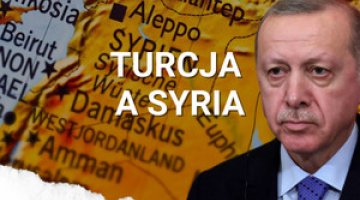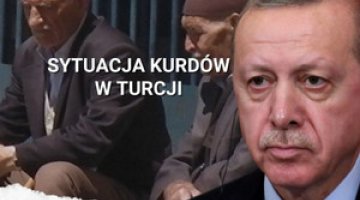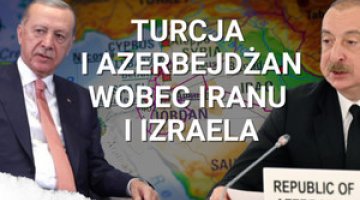Analyses
Turkey: an undisputed victory for Erdoğan in the second round of the presidential election
Cooperation
Adam Michalski
The second round of Turkey’s presidential election was held on 28 May. According to partial results reported by the Supreme Election Commission (with more than 99% of the votes counted), the incumbent Recep Tayyip Erdoğan won the election with 51.91% of the vote. His rival Kemal Kılıçdaroğlu, who was supported by a broad opposition alliance, got 48.09%. Turnout reached 84.22%, slightly lower than in the first round. Apart from some isolated incidents, the voting and counting proceeded calmly. The result of the election has been accepted by the opposition.
Commentary
- The elections were a test of public support for Erdoğan, who has ruled the country continuously since 2002 (first as prime minister and then as head of state). At stake was the continuation of the system he has built over the two decades of his rule. Given the extent to which today’s Turkey is intertwined in terms of politics, economics, business and identity with the person of the incumbent president, it must be acknowledged that his removal from power would not only mean a simple reshuffle of personnel, but also a de facto change in the political system. Despite isolated irregularities, both rounds of elections must be considered fair in terms of the accuracy of the results. At the same time, however, they were highly unfair for several reasons. The ruling camp benefited from the support of the state apparatus in the campaign while exercising almost full control (direct and indirect) over national media. Over the years, it has also used law enforcement and the judiciary to harass and repress political opponents (including journalists, lawyers, NGO activists and private individuals).
- The election took place amid a financial crisis, resulting in the increasing pauperisation of the population, and a state of deep social polarisation, all of which were magnified by the shock of the February earthquake that killed more than 50,000 people. These circumstances negatively affected Erdoğan’s support and led his rival to a dominant lead in some pre-election polls. For the first time in 20 years an opposition victory seemed like a realistic scenario. However, the elections (parliamentary and the first round of the presidential poll) on 14 May were clearly won by the ruling party and Erdoğan, which showed that the opposition’s numbers had been significantly overestimated. In turn, the worse-than-expected result translated into a clear drop in morale within the opposition, and in consequence discouraged parts of its electorate. This was primarily true of the Kurdish population, who were further troubled by Kılıçdaroğlu’s resort to strident nationalist and anti-refugee rhetoric before the second round.
- Although the current president achieved a noticeably worse result than in the previous election in 2018 (when he won 52.6% of the vote in the first round) his victory should nevertheless be considered as a major success. The result confirms once again that, despite his negative ratings and the country’s growing financial difficulties, there is still no alternative to Erdoğan at this point. He owes his victory to a combination of several factors. First, his structural advantages over the opposition. Second, the fact that for a significant part of the electorate, voting for him is a question of identity, a choice some take independently of the current domestic situation. Third, his ability to skilfully exploit the genuine achievements of his twenty-year rule while systematically attempting to delegitimise the opposition (including accusations that it has links to Kurdish terrorist groups).
- The mere fact that the opposition was able to field a common candidate (despite the deep differences amongst them) who could engage in an equal fight with Erdoğan should be considered as a success for the opposition. Kılıçdaroğlu ran a dynamic campaign, and in many aspects landed some good blows on the incumbent president and the ruling camp. However, the election once again ended in defeat for the opposition. For Kılıçdaroğlu himself, it was his fifth loss in the parliamentary elections and the second in the presidential race since he took over the leadership of the Republican People’s Party (CHP) in 2010 – the largest opposition force in Turkey. It seems that without fundamental personnel and policy changes in this camp, his chances of electoral success in the future will remain unrealistic. We should therefore expect Kılıçdaroğlu’s role as opposition leader to be challenged.
- The ruling camp’s clear victory in both the 14 May parliamentary and presidential elections, as well as Erdoğan’s first statements after the results were announced, indicate first and foremost that he intends to continue with his current policies in most areas. At the same time, however, having secured power for another term, the president will now have to confront several major challenges. The first is the financial crisis, which is largely due to the government’s own monetary policy (deliberately keeping interest rates low) and the shortage of foreign exchange reserves, which have been successively consumed in (ineffectively) propping up the value of the lira. The second problem is the Turkish public’s fatigue at the presence of Syrian refugees in the country: these now number more than 3.5 million people. While aiming to solve this problem (or at least to demonstrate the will to do so to the public), the authorities will continue the process of normalising relations with Syria and conducting dialogue on this issue with Moscow and Tehran. In the meantime, it seems that regarding the US, the EU, NATO enlargement or the war in Ukraine, Turkey's position is unlikely to change significantly.




